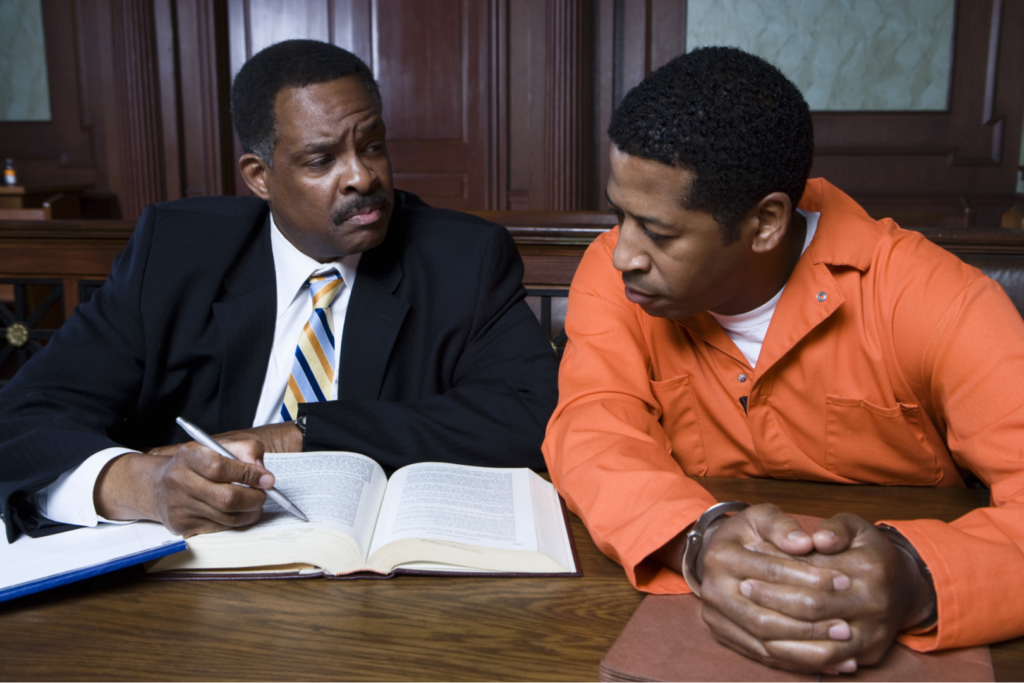If you’ve been following the news surrounding Dallas County lately, then you already know that Dallas County jail is going through a current crisis. It’s close to full capacity (97%) with 6,558 detainees, when the jail itself can only hold 7,000 inmates.
Cheerleaders for bail reform say that cash bail is something that only the wealthy can benefit from.
This is a problem for taxpayers that sink millions of dollars into county jail upkeep. The costs for reaching capacity and trying to figure out what’s next after jails are full could put a pinch on any average joe’s wallet.
Yet, many want bail reform. Cash bail is something hailed as a “tax on being poor.” Posters on Quora have actually gone so far as to say a wealthy person, like a President, could be given $1 million in a bond and could post it within a day by digging into their pockets.
Bail reform can get really messy, really fast. Let’s take a look at examples of where bail reform has faltered in recent years and the disadvantages that can result from it.
Does Bail Reform Really Cut Down On Crime?
There have been several pushes from coast to coast to eliminate cash bail. The two most notable efforts were in New York in 2019 and California in 2021.
In New York, the state passed a comprehensive bail reform package that eliminated cash bail for most misdemeanors and non-violent felonies. This reform aimed to reduce pretrial detention for individuals charged with lower-level offenses.
The 2021 California In re Humphrey decision that ruled setting bail at levels people couldn’t pay was unconstitutional. The goal for both of these reform efforts was to cut down on unfair detainment of minorities and financially unstable individuals arrested for minor crimes.
However, in both reform cases evidence of their passing is having little to no positive impact.
According to a study from UCLA Law and Berkley Law, there has been little change with arrests years after the state supreme court made the decision.
There isn’t a decrease in pretrial population, which was the ultimate goal of reform. So, in the end, tax dollars and legal efforts to pass this reform made little difference and ultimately put more pressure on the courts and held up the bail bond process as bail amounts were haggled over versus following standard bail schedules.
We’ll revisit what went down in New York, but let’s look at some of the biggest downfalls behind bail reform, and why we think Dallas County needs a bail system to keep its communities safer.
Risk of Increased Crime Rates
One concern with bail reform is that it ignores the root of a city’s crime problems and could lead to an increase in crime rates. The basic idea is that letting more people await trial at home rather than in jail may result in more crime being committed by those individuals between arrest and trial.
Bail amounts help ensure some people are detained pretrial because they pose a public safety risk. Relaxing standards for pretrial release may result in dangerous criminals being let out on bail who go on to commit more crimes.
Let’s return to that New York bail reform case. A study from the University of Albany states that bail reform did not increase crime. It also displays some clear examples of a flawed reform system. Yes, bail reform may have decreased the jail population, but violent crimes rose by 1% and murders increased by 47%. Larceny and auto theft also increased after bail reform.
While reform accomplished one goal, a common misunderstanding with the public of how new reform works led to increased crime rates that only put more innocent bystanders at risk.
Burden on Pretrial Services Programs
Even in Texas, bail reform often involves expanding pretrial services programs to monitor and assist defendants who are released pending trial.
These programs help defendants show up for court dates and refrain from criminal activity leading up to their trial.
While this could be helpful for the bail bond process overall, amping up pretrial services requires funding, staffing, and other resources.
If counties throughout Texas don’t provide enough support for these programs, then expanded pretrial services could be set up to fail, wasting an unprecedented amount of taxpayer dollars.
Bail Reform Limits Judge’s Purview
One potential drawback of bail reform is that it may limit the discretion and authority of judges in setting bail and determining pretrial detention.
Bail reform usually comes with more stringent rules around bail-setting, such as limits on the use of money bail or required consideration of a defendant’s financial circumstances (Much like the California bail reform efforts).
While well-intentioned, these reforms restrict the ability of judges to set bail and bond conditions on a case-by-case basis as they see fit based on the circumstances. Removing judicial discretion could lead to the release of defendants that a judge believes should be detained pretrial, which critics argue could pose a risk to public safety.
Fair, Affordable Bail
While we can understand the frustration of someone being unable to pay full cash bail after getting arrested, we believe that 1st Call Bail Bonds in Dallas, Texas offers a fair, affordable alternative to the long-term concerns that come hand-in-hand with bail reform.
Our Dallas bail bond office is open 24/7 and we are ready to offer the most affordable bail bonds at just 10 percent of any bail amount.
Whether it’s your first jail stint or your latest mistake, we’re here to help you get through this and get back home.
Contact us today to learn more about our services and get the bail bond process in motion.




